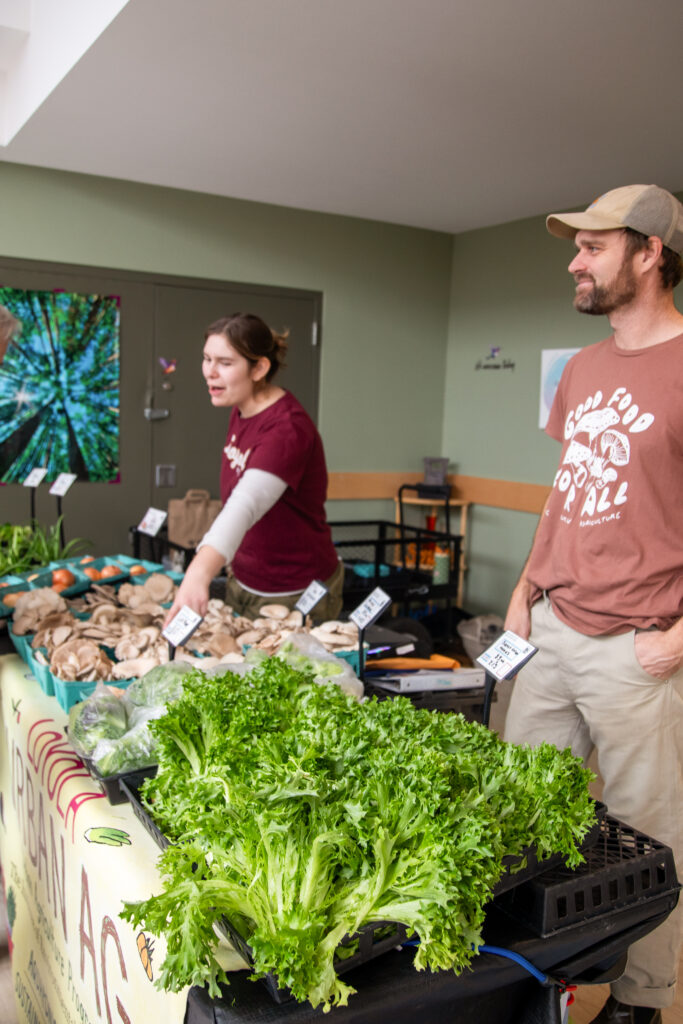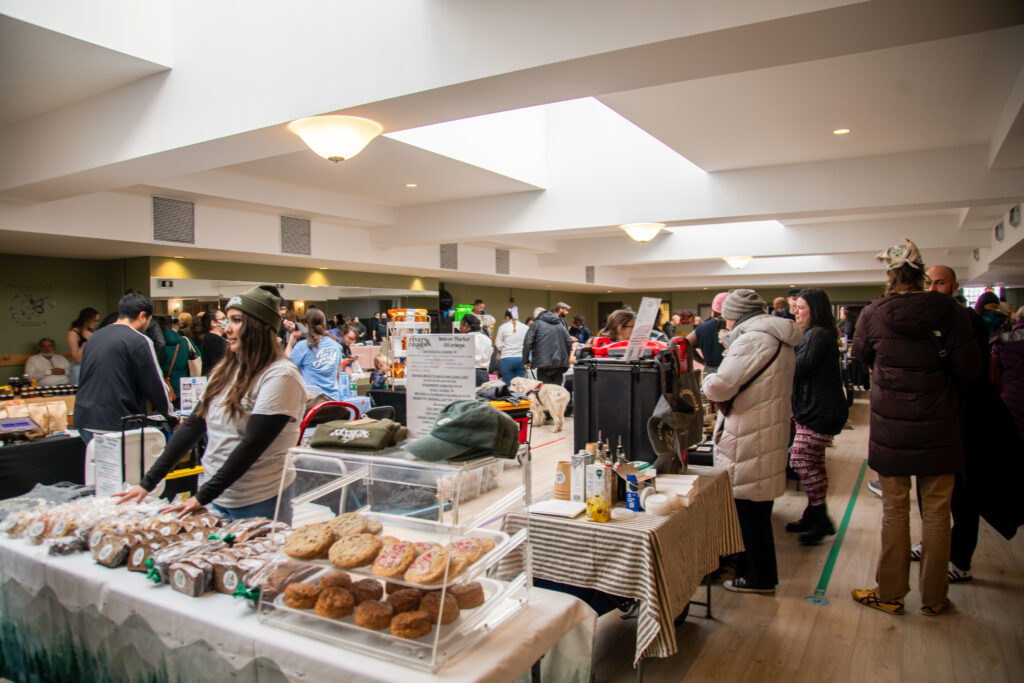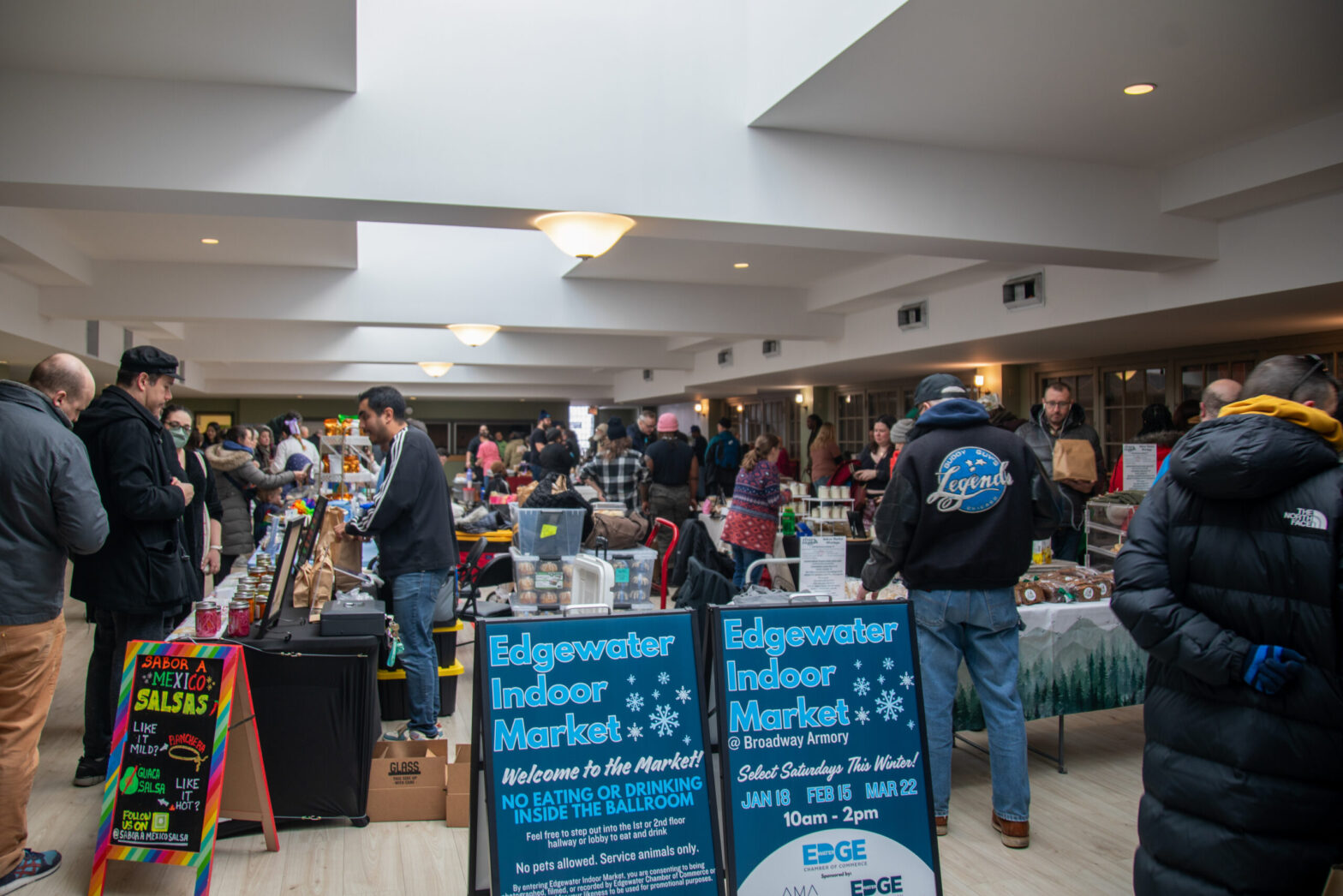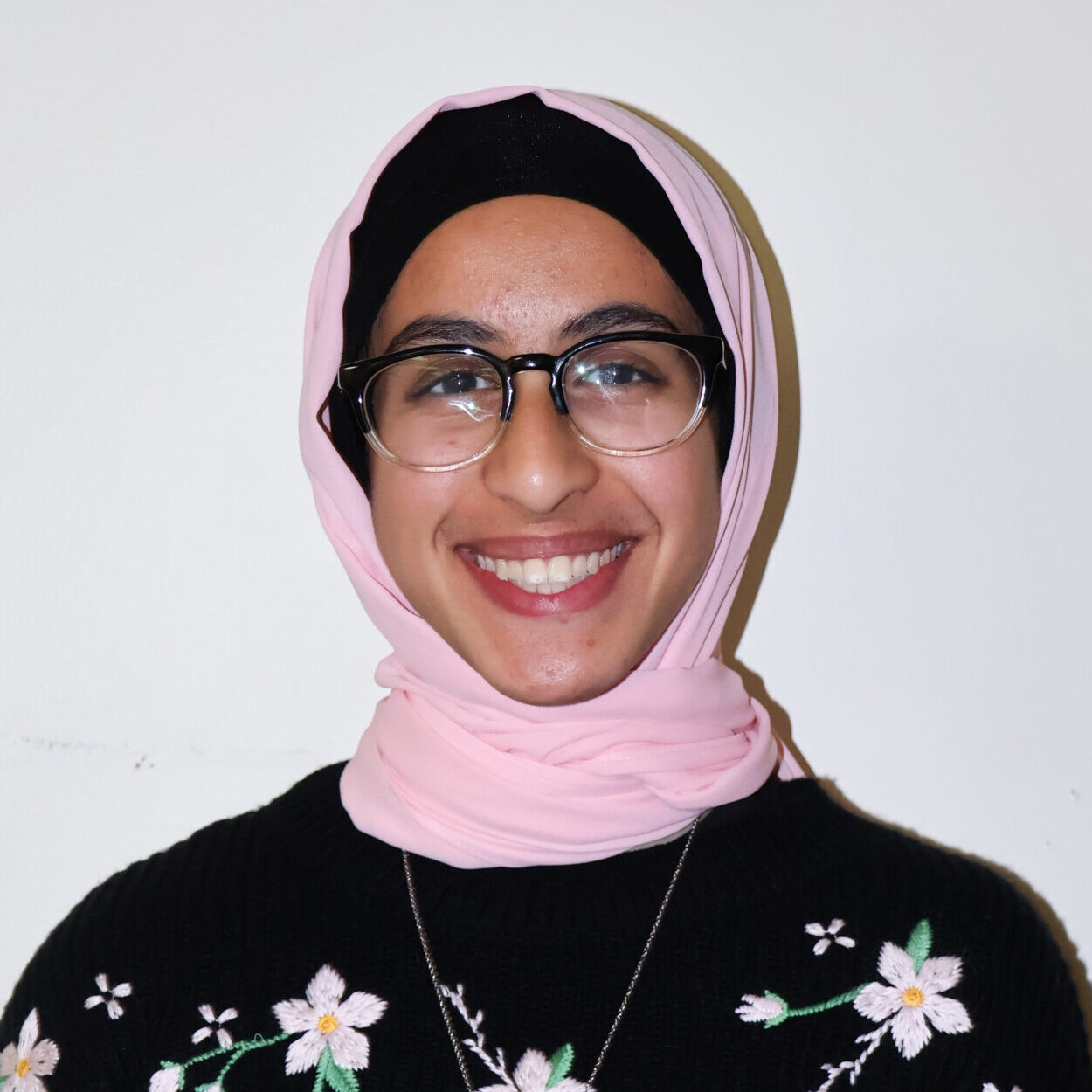On a freezing morning in Edgewater, customers wrapped in scarves and coats lined up outside the second floor of the community center and parked at the Broadway Armory.
The Edgewater Indoor Market launched Jan. 18, introducing the community's first indoor marketplace. Featuring more than 30 vendors, the event provided a platform for small businesses to showcase sustainable and locally made products.
The market, sponsored in part by the university, connected students from Edgewater, Rogers Park and Loyola with environmentally conscious businesses and practices.
During the market, Loyola's Urban Agriculture program sold produce grown in the School of Environmental Sustainability's Ecodome greenhouse.
Alejandra Rodriguez, a fourth-year environmental policy major, said they will sell 50% of the produce grown in the greenhouse and donate the other 50%. The program uses sustainable and organic farming practices and encourages students to join the initiative.

“Being at a market is a really great way to interact directly with our community and not separate ourselves from it,” Rodriguez said. “We interact with the people we sell to, and I think that's a really good way to really make Loyola's mission of integrating into this community a success.”
Garret Karp, executive director of the Edgewater Chamber of Commerce, said Loyola is a major sponsor of all Edgewater events and he encourages students to join the chamber.
“We love seeing loyal students come to our events and become more involved in the community,” Karp said. “For Loyola alumni, the Edgewater Chamber networking events are a really great place to learn about the local business community, meet people and network.”
The vendors in the market demonstrated a shared commitment to sustainability and social engagement.
John Bailey Honey, a beeswax and honey company, said its goal is to reduce its environmental impact through eco-friendly business practices.
Alicia Sporinsky, manager of John Bailey Honey, said their sustainable practices made them a crowd-pleaser.
“We have about 36 hives throughout the county,” Sporinsky said. “All of our products – from organic honey to beeswax – come directly from our hives and we use sustainable pine boxes and recyclable jars to minimize waste.”
Denise Hows of Overflow Candle Co said she started the company during the COVID-19 pandemic. Hows said most household candles pose a danger to the body because they contain toxic chemicals. According to the National Library of Medicine, burning candles release chemicals containing polycyclic aromatic hydrocarbons – the same organic compound released in engine exhaust.
Hows said her company places great emphasis on ingredient transparency when making candles.
“I use coconut soy wax instead of paraffin,” Howes said. “It is more sustainable and less toxic. Education is key – I want people to understand what’s in their candles and household products.”
When students understand what goes into products, they can make informed decisions and become more committed to sustainable living. Sophie Desaesilva from WasteNot Compost said there were simple steps to reduce waste.
“Reducing is the biggest step,” Desaesilva said. “Shop at stores that don’t use plastic, buy only what you need and compost it. “Talking about composting – sharing it with neighbors and friends – can make a big difference.”
Deirdre Austin, owner of herbal pharmacy DMApothecary, said she started her business after countless emergency room visits and finding out that the products she had purchased in stores were toxic.
“We make everything by hand in-house,” Austin said. “From herbal medicines to bath bombs, we strive for zero waste and promote clean, eco-friendly living. Every little step counts – even saving the planet one reusable cup at a time.”
Austin said she is on a mission to get her customers to switch to clean and environmentally friendly approaches.
“I'm trying to teach people not only to save the planet, but also to get healthy,” Austin said. “Many of my products are very good for building your immune system and ensuring that you are protected against all viruses that are out there.”

Harvard, Illinois-based Wanda Farm wants to immerse itself in the Chicago scene and encourage people to look for products that don't harm the environment.
Wanda Farm uses regenerative agriculture that protects natural resources and restores the environment rather than depleting it.
Tara Sullivan, manager of Wanda Farm, said it is important for farmers not to till the land. By eliminating chemicals on land, grazing animals can be healthy without growth hormones or antibiotics.
Sullivan said it's difficult for customers to find sustainable products and Wanda Farm is working on accessible approaches.
“We do home delivery and try to reach as many farmers markets as possible,” Sullivan said. “It is difficult to find locally made products, but we do our best in home delivery to ensure customers receive the best quality food.”
Growing microgreens in an urban environment reduces the negative environmental impact of long-distance food transportation, according to Green Living Journal. Katie Staudt, owner of Meraki Urban Farms, built her business based on her passion for microgreens.
Staudt said education in sustainability helps make people aware of the small ways they can help the environment. She leads workshops at universities and helps people learn about growing microgreens in an urban environment.
“Locally grown food is a year-round, accessible and sustainable source of nutrition,” Staudt said.
With zero-waste candles, homegrown produce and composting tips, as well as jars of organic honey and handmade apothecary products, Edgewater Indoor Market promoted small, eco-friendly businesses in the neighborhood.
The market is expected to return twice more this winter with more vendors and an increased focus on sustainability on February 15th and March 22nd.

